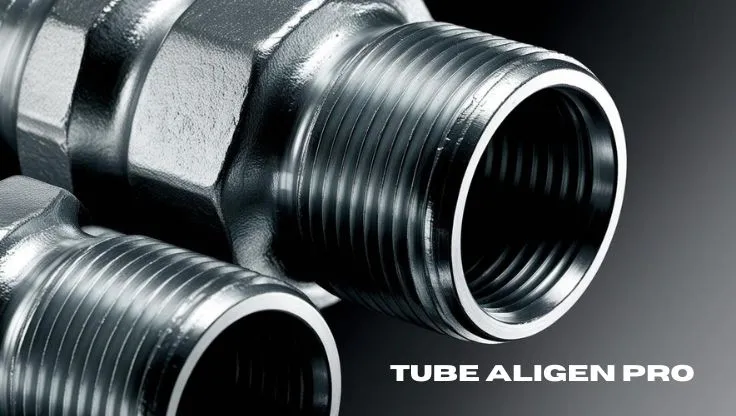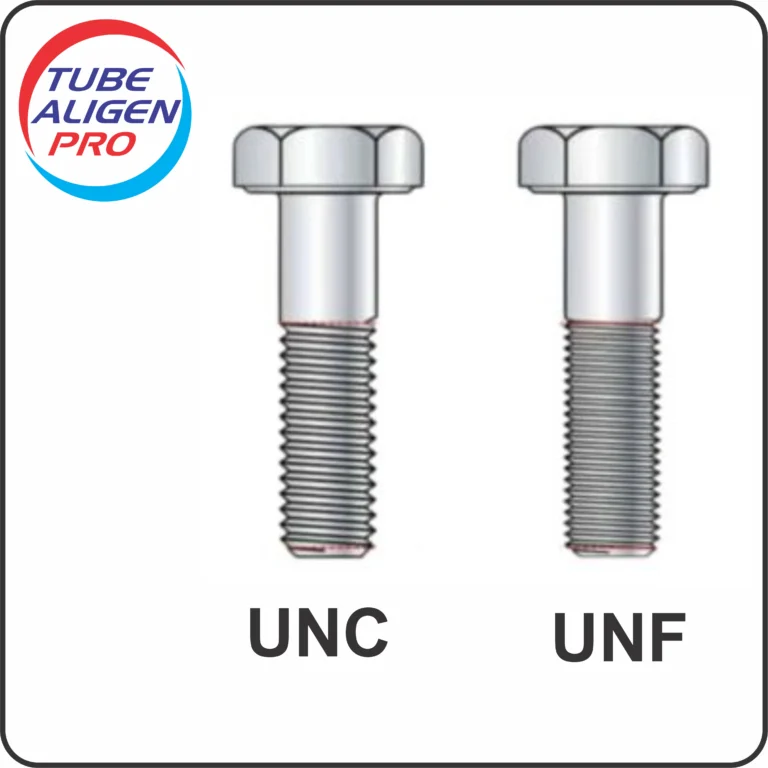Understanding the NPT Thread Chart: Comprehensive Guide to National Pipe Threads
When we are working with plumbing, piping systems, or industrial equipment, one term you’ll come across frequently is NPT. But what does that term mean, and why is understanding an NPT thread chart so important? This article will explore the significance of NPT, its specifications, and how to interpret an NPT thread size chart. We’ll also examine the role NPT plays in various industries and why using the correct thread size is critical for success. we proudly offer the most comprehensive and insightful information on.
At Tube Aligen Pro, designed especially for our valued viewers

What Does NPT Mean?
NPT refers to either National Pipe Thread or National Pipe Taper-a standard developed for threaded pipes and fittings in the USA. This threading is set up to create a tight seal to prevent leaks within a liquid or gas system. Its tapering mechanism guarantees that the threads tightly compress into a strong, lasting fit when tightened
Why Are NPT Threads Significant?
NPT threads are widely used because they:
- Provide a reliable sealing mechanism without requiring additional sealants or adhesives.
- Are versatile, serving industries such as plumbing, HVAC, oil, gas, and manufacturing.
- Offer a standardized system, ensuring compatibility across different systems and components.
Understanding NPT thread specs is essential for selecting the right components in any project. Misusing thread sizes or diameters could lead to seal failure, inefficiency, or even system damage.
Decoding the NPT Size Chart
The NPT size chart organizes threads by Nominal Pipe Size (NPS), a historical term reflecting approximate inner diameters. Key metrics include:
- Threads Per Inch (TPI): Higher TPI = finer threads.
- Nominal Pipe Size (NPS): Labeled in fractions (e.g., 1/8″, 1/2″).
- Outside Diameter (OD): Measured at the thread’s largest end.
- Pitch Diameter: Determines thread engagement.
NPT Thread Size Chart
| Outside Diameter D | Nominal Pipe Size | Threads per inch (Pitch) | Thread Pitch Length, P | Pitch Diameter at External Thread Start E0 | Hand Tight Thread Engagement Length, L1 | Diameter E1 | Maximum Thread Engagement L2 | Diameter E2 |
| 0.3125 | 1/16 | 27 | 0.03704 | 0.27118 | 0.160 | 0.28118 | 0.2611 | 0.28750 |
| 0.405 | 1/8 | 27 | 0.03704 | 0.36351 | 0.1615 | 0.37360 | 0.2639 | 0.38000 |
| 0.540 | 1/4 | 18 | 0.05556 | 0.47739 | 0.2278 | 0.49163 | 0.4018 | 0.50250 |
| 0.675 | 3/8 | 18 | 0.05556 | 0.61201 | 0.240 | 0.62701 | 0.4078 | 0.63750 |
| 0.840 | 1/2 | 14 | 0.07143 | 0.75843 | 0.320 | 0.77843 | 0.5337 | 0.79179 |
| 1.050 | 3/4 | 14 | 0.07143 | 0.96768 | 0.339 | 0.98887 | 0.5457 | 1.00179 |
| 1.315 | 1 | 11 1/2 | 0.8696 | 1.21363 | 0.400 | 1.23863 | 0.6828 | 1.25630 |
| 1.660 | 1 1/4 | 11 1/2 | 0.8696 | 1.55713 | 0.420 | 1.58338 | 0.7068 | 1.60130 |
| 1.900 | 1 1/2 | 11 1/2 | 0.8696 | 1.79609 | 0.420 | 1.82234 | 0.7235 | 1.84130 |
| 2.375 | 2 | 11 1/2 | 0.8696 | 2.26902 | 0.436 | 2.29627 | 0.7565 | 2.31630 |
| 2.875 | 2 1/2 | 8 | 0.12500 | 2.71953 | 0.682 | 2.76216 | 1.1375 | 2.79062 |
| 3.500 | 3 | 8 | 0.12500 | 3.4062 | 0.766 | 3.38850 | 1.2000 | 3.41562 |
| 4.000 | 3 1/2 | 8 | 0.12500 | 3.83750 | 0.821 | 3.88881 | 1.2500 | 3.91562 |
| 4.500 | 4 | 8 | 0.12500 | 4.33438 | 0.844 | 4.38712 | 1.300 | 4.41562 |
| 5.563 | 5 | 8 | 0.12500 | 5.39073 | 0.937 | 5.44929 | 1.4063 | 5.47862 |
| 6.625 | 6 | 8 | 0.12500 | 6.44609 | 0.958 | 6.50597 | 1.5125 | 6.54062 |
| 8.625 | 8 | 8 | 0.12500 | 8.43359 | 1.063 | 8.50003 | 1.7125 | 8.54062 |
| 10.750 | 10 | 8 | 0.12500 | 10.54531 | 1.210 | 10.62094 | 1.9250 | 10.66562 |
| 12.750 | 12 | 8 | 0.12500 | 12.53281 | 1.360 | 12.61781 | 2.1250 | 12.66562 |
| 14.000 | 14 | 8 | 0.12500 | 13.77500 | 1.562 | 13.87262 | 2.2500 | 13.91562 |
| 16.000 | 16 | 8 | 0.12500 | 15.76250 | 1.812 | 15.87575 | 2.4500 | 15.91562 |
| 18.000 | 18 | 8 | 0.12500 | 17.75000 | 2.000 | 17.87500 | 2.6500 | 17.91562 |
| 20.000 | 20 | 8 | 0.12500 | 19.73750 | 2.125 | 19.87031 | 2.8500 | 19.91562 |
| 24.000 | 24 | 8 | 0.12500 | 23.71250 | 2.375 | 23.86094 | 3.2500 | 23.91562 |
NPT vs NPS

What is NPT Thread Chart? Guide for National Pipe Taper Threads
It is a very important reference tool for plumbing, engineering, and plant piping systems. NPT also refers to the National Pipe Taper, which is the U.S. standard for tapered threads on threaded pipes and fittings. The NPT thread chart has actual measurements and specifications involved in ensuring the proper selection and compatibility of threads with proper sealing integrity.
Here is what an NPT Thread Chart may have:
1-Nominal Pipe Size
2-Outside Diameter (OD)
3-Threads Per Inch (TPI)
4-Thread Pitch
5-Pitch Diameter
Hand Tight Engagement (L1, E1)
Effective Thread Engagement (L2, E2)
The above parameters help the users to match the male and female NPT threads for leak-proof connections. Since NPT is a tapered thread and not parallel, the thread will compress in order to give a tight seal, requiring sealant or tape for extra reliability in most cases.
Key Difference Between NPT and Other Thread Types
One unique aspect of NPT is its tapered design, commonly referred to as national pipe thread taper. This taper ensures a tighter seal as the fittings are screwed together compared to parallel thread designs. The taper angle in NPT threads is 1° 47′ (1.7899°).
Components of an NPT Pipe Thread Chart
An NPT thread chart provides vital information about thread sizes, diameters, threads per inch (TPI), and other specifications needed for selecting and installing fittings. Here are the key elements you’ll find in an NPT thread size chart:
- Nominal Pipe Size (NPS)
This refers to the pipe’s named or standard size, though not necessarily indicative of its actual outside diameter. - Threads Per Inch (TPI)
The number of threads per inch helps achieve compatibility between male and female fittings. - Outside Diameter (OD)
The external diameter of the pipe or fitting. - Pitch Diameter
The diameter where the thread thickness equals the gap between threads. - Hand Tight Engagement
Indicates how deep the threads will engage into the fitting by hand-tightening.
Applications of NPT Fittings
NPT fittings are used in applications where a tight seal is crucial, such as:
- Plumbing: For connecting water pipes in residential or commercial systems.
- HVAC Systems: For fitting conduits and air shafts.
- Oil & Gas: For transferring liquids or gases safely in extreme conditions.
- Industrial Equipment: Used in machinery that handles fluids under pressure.
When selecting fittings, always refer to an NPT pipe thread chart to verify compatibility.
How to Use an NPT Thread Chart
- Identify the Application: Consider pressure, temperature, and the medium being transported.
- Refer to Thread Specifications: Match the nominal pipe size and threads per inch using a reliable National Pipe Thread Chart.
- Check Compatibility: Ensure the male and female threads have the same TPI, taper, and pitch diameter.
Understanding NPT thread diameters and NPT thread specs will help ensure proper sealing and functionality of all connections.
How to Use the NPT Thread Chart
- Match NPS: Align the nominal size with the pipe or fitting.
- Verify TPI: Ensure compatibility between components.
- Measure OD: Use calipers to confirm dimensions.
- Gauge Engagement: Use L1/L2 gauges for proper thread depth.
Applications of NPT Threads
NPT threads are ideal for:
- High-pressure hydraulic systems.
- Residential plumbing installations.
- Gas and oil pipeline connections.
NPT vs. Other Thread Standards
- BSP (British Standard Pipe): Uses parallel or tapered threads (BSPP/BSPT).
- NPTF (Dryseal): Modifies thread crests for sealant-free use.
- NPS (Straight): Requires gaskets for sealing.
Installation Tips for NPT Fittings
- Clean Threads: Remove debris to avoid cross-threading.
- Apply Sealant: Use Teflon tape or pipe dope.
- Tighten Gradually: Hand-tighten first, then add 2–3 wrench turns.
Common Mistakes to Avoid
- Mixing NPT and BSP threads.
- Skipping sealant or applying it incorrectly.
- Over-tightening, which cracks fittings.
FAQs
Conclusion
NPT meaning: National Pipe Thread, a U.S. standard for threaded piping.
What is NPT? A tapered thread design that ensures tight seals for fluid and gas transport.
Pipe Thread Chart NPT: A tool that lists thread sizes, TPI, diameters, and engagement depth.
NPT Fittings: Used in plumbing, HVAC, and industrial systems, thanks to their reliability and standardized specs.
When we in doubt, always refer to an NPT thread chart or NPT thread diameter chart. Convenience in referencing such widths brings much-needed assurance for an error-free application.
The careful consideration of thread sizes guarantees safety, efficiency, and long-term reliability in any system. You now know how National Pipe Thread sizes are important, and this will arm you to walk the piping and fitting road with confidence!
This Website may have Affiliate Links





